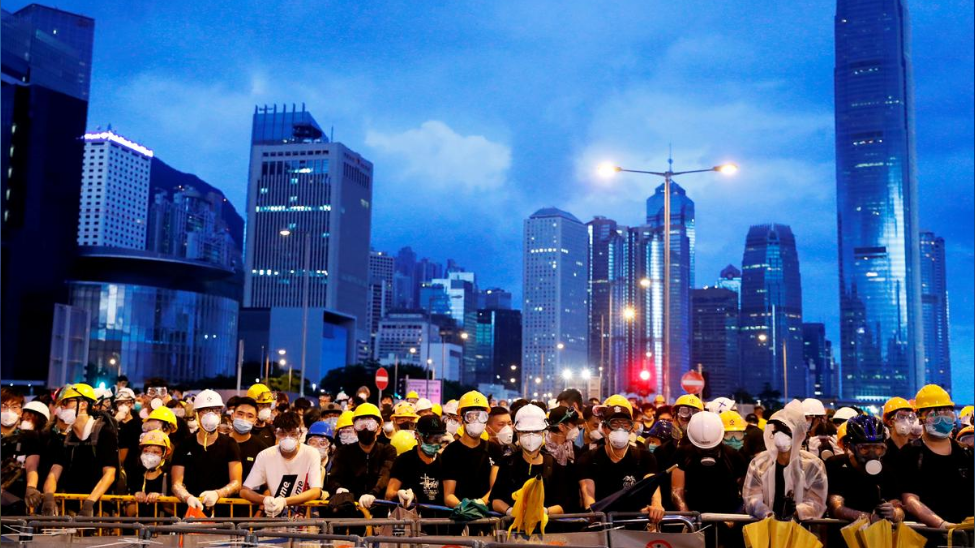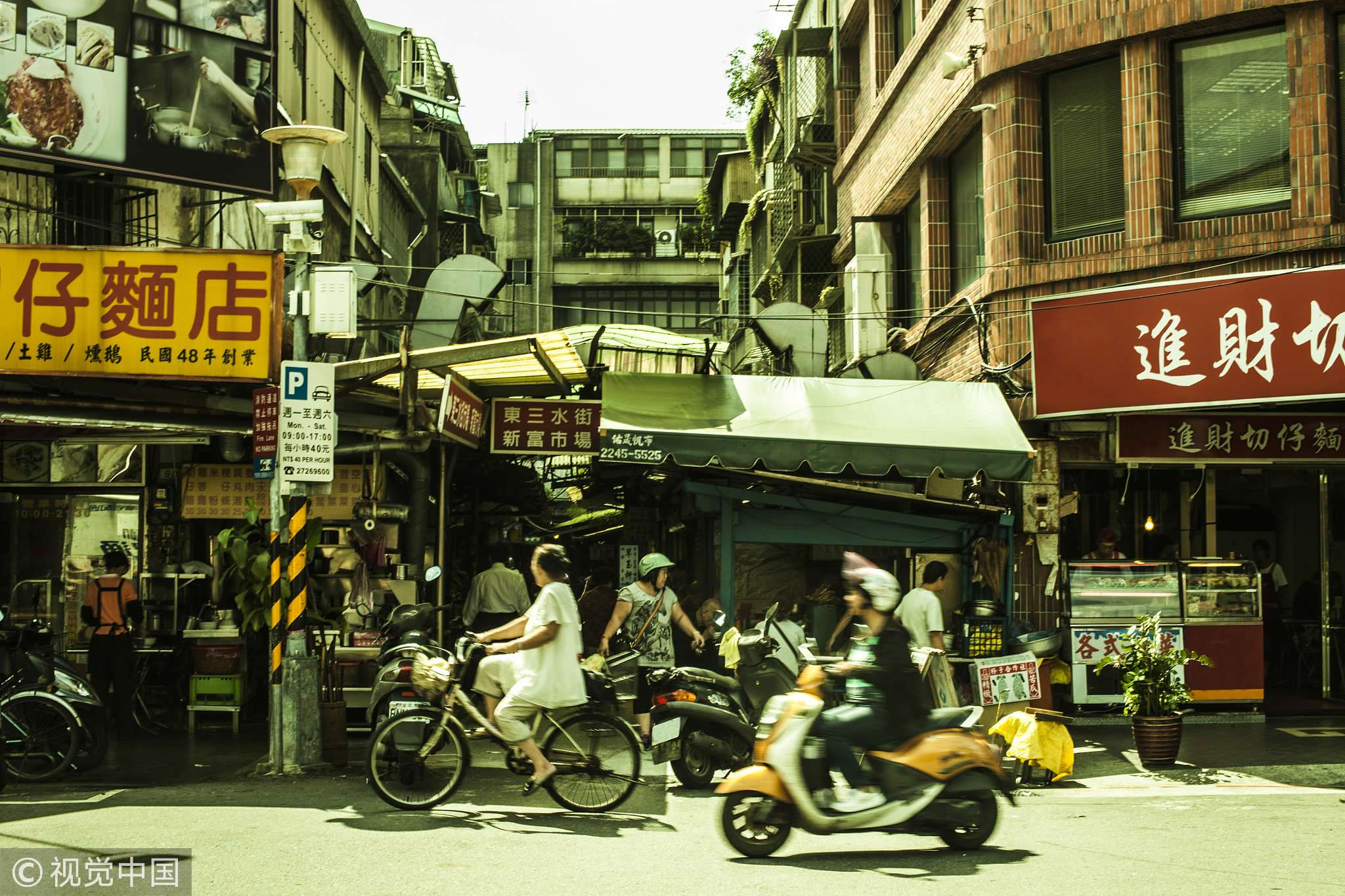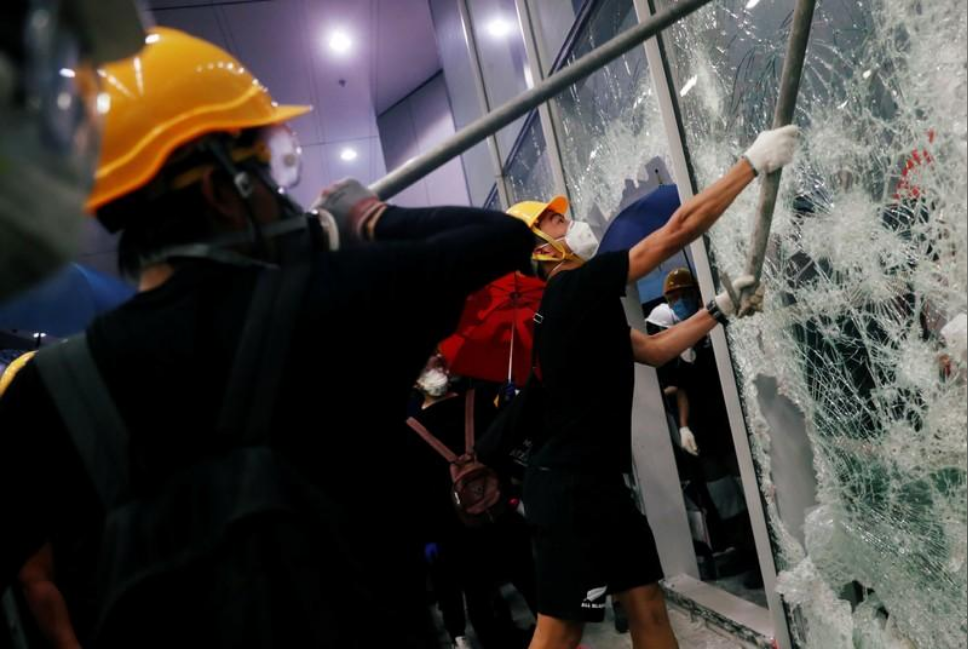

Editor's note: Tom Fowdy, who graduated with an MSc in Chinese Studies from Oxford University and majored in politics at Durham University, writes on the international relations of China and the Democratic People's Republic of Korea. The article reflects the author's opinions, and not necessarily the views of CGTN.
Taiwan leader Tsai Ing-wen announced this week that a number of Hong Kong protesters, who in previous weeks engaged in the storming and vandalism of the city's Legislative Council building, had fled to Taiwan and were now claiming asylum there. Unsurprisingly, she's making a political spectacle out of the situation, stating that their requests would be taken seriously and dealt with "humanely".
With election season around the corner, her approach towards the Chinese mainland has become increasingly provocative, knowing that whatever she says or does will result in her receiving blanket and uncritical support from Western media.
But let's examine the facts, are these people seriously refugees? I cannot agree that it is appropriate or at all justifiable to consider them as such. The individuals in question are accused of criminal damage to government property and will inevitably face prosecution for that.
Although they argue their political ends are justified, their decision to deface the building was a personal one which was above all needless, counterproductive and not desperate. Now fleeing the consequences of those actions, this makes a mockery out of what ought to constitute a genuine "refugee" and seemingly displaces genuine cases around the world.

Street market between buildings in Taipei, Taiwan, southeast China. /VCG Photo
What is a refugee? A basic dictionary definition coins it as "a person who has been forced to leave their country in order to escape war, persecution, or natural disaster." There are many situations around the world as of present which are creating huge flows of refugees.
For example, extreme poverty and desperation in Venezuela, bloody civil wars in Yemen and in Syria, ethnic and civil conflicts in central Africa, the list goes on.
Although the policy of admitting refugees into Western countries has proved controversial to some and created a backlash, few would seriously argue that the individuals in these aforementioned nations do not have a case.
On such context, we might accurately describe a "refugee" as someone who is by force uprooted from their home on the precedent of fleeing a life-and-death situation which is not of their own making, or they face unjustifiable consequences for an action.
Then we have Hong Kong. Let's get some facts straight: Hong Kong is one of the most developed, prosperous and lucrative societies on earth. Its inhabitants enjoy an extremely high quality of living, which for decades was far ahead of the Chinese mainland.
Its transport infrastructure, healthcare, education and leisure have all been the envy of the world for a long time. Hong Kong itself is a destination for refugee inflows, with ethnic minority groups very much present.
On this background of privilege, a number of people in Hong Kong decided to aggressively storm the Legislative Council building and engage in acts of criminal damage and vandalism, despite aforementioned warnings that such activities would invite clear legal consequences upon them, and now they have the will to say they are "refugees" avoiding persecution? This is almost the stuff of satire.
Do not believe the hype or nonsense they are peddling to the mainstream media, people in Hong Kong may profoundly disagree with their authorities, but they are by no means desperate. These individuals are not being prosecuted for "dissenting," they are being prosecuted because they broke the law and engaged in extreme disorder.

Anti-fugitive bill protesters break into the Legislative Council building during the anniversary of Hong Kong's return to China, Hong Kong, China, July 1, 2019. /Reuters Photo
In this sense, there is a broader irony to it all. People in Hong Kong have claimed the fugitive bill is antagonistic to the rule of law in the territory, but having the rule of law also means fairly being held to account by the law.
To desecrate the Legislative Council building and then flee the consequences assumes that one is above the law. Again, the decision was an act of personal agency and there are many people within the territory who may continue to disagree, but are not resorting to destruction to get their point across.
In this light, their refugee plight makes a mockery out of sincere cases for asylum throughout the world.
You have people fleeing bombs in Syria and starvation and disease in Yemen, and then a group of people from a prosperous city engaging in willing criminal damage with aforementioned knowledge of the consequences, attempting to paint themselves as a persecuted minority, enabled by clear opportunism across the Taiwan Strait.
They aren't refugees, let's be honest.
(If you want to contribute and have specific expertise, contact us at opinions@cgtn.com.)

Copyright © 2018 CGTN. Beijing ICP prepared NO.16065310-3
Copyright © 2018 CGTN. Beijing ICP prepared NO.16065310-3